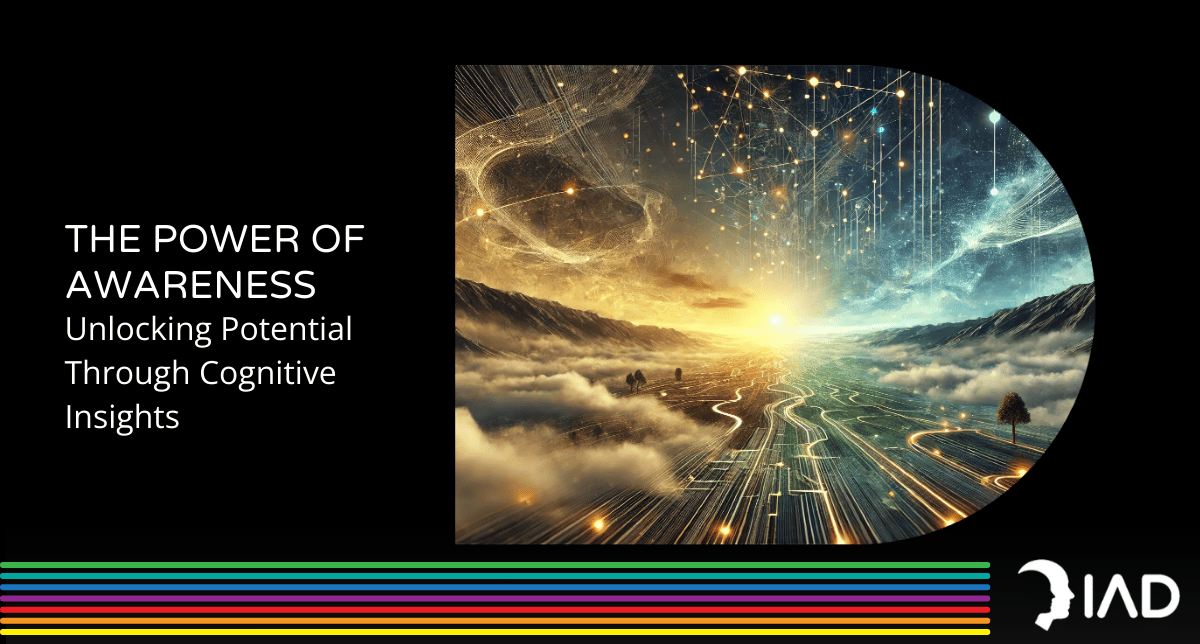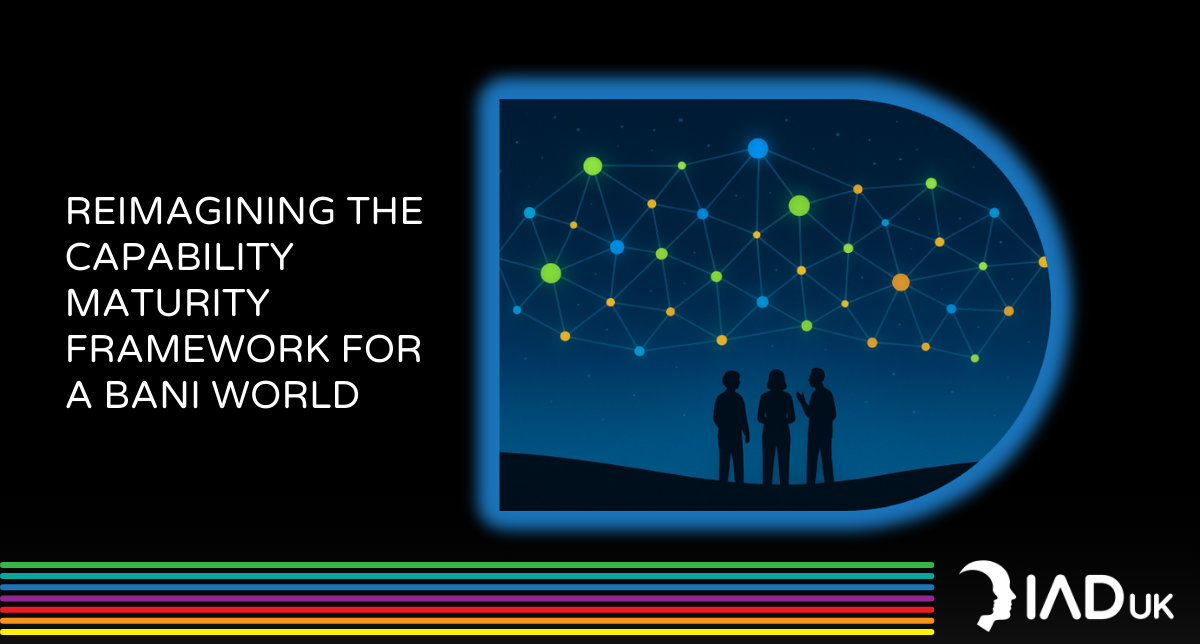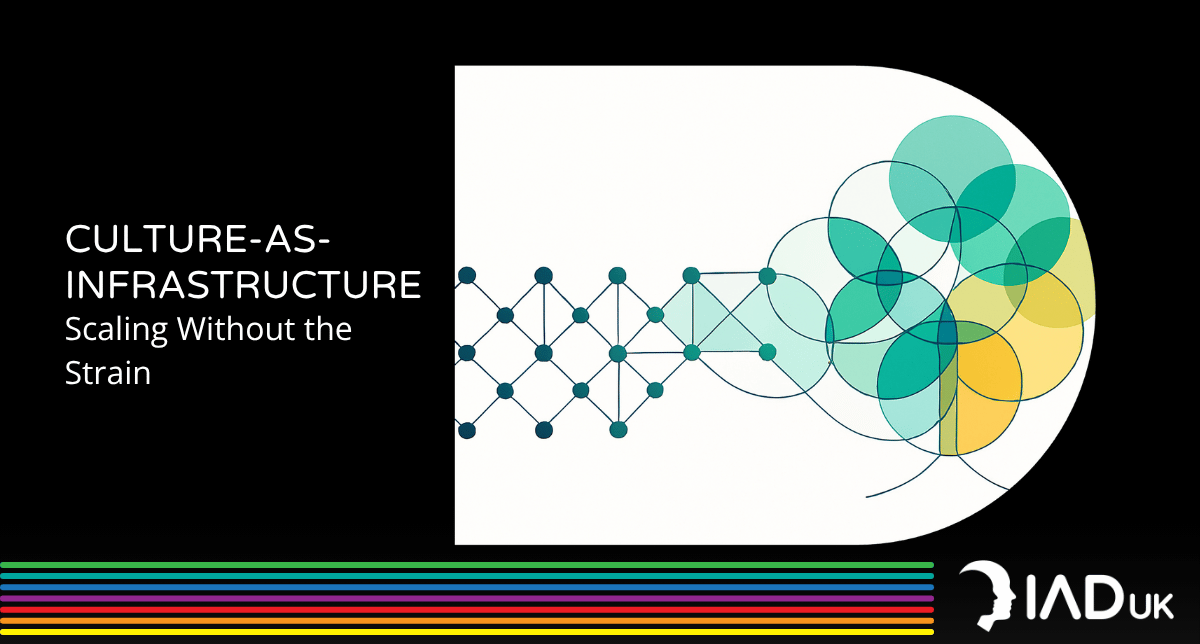The Power of Awareness: Unlocking Potential Through Cognitive Insights
Growth Doesn’t Come from More Skills—It Comes from Seeing Differently

Spring signals renewal—a time for transformation and growth. In organisations, however, growth does not happen simply because there is a will for change. Many teams push harder, invest in leadership training, and introduce new strategies, yet find themselves repeating familiar cycles of effort without achieving lasting progress.
The reason? Sustainable growth does not come from working harder—it comes from perceiving differently.
Most individuals and teams operate within Cognitive Intentions—deeply ingrained thinking patterns that shape how they approach challenges, interact with others, and make decisions. These patterns are often invisible, which means they continue to reinforce limitations rather than break through them. Without awareness of the underlying cognitive constructs in play, leaders and teams remain bound by habitual responses, limiting their ability to adapt, innovate, and grow.
Expanding Awareness at the cognitive level is the key to unlocking sustainable growth. When leaders and teams become aware of how their thinking patterns shape their actions, they gain the ability to challenge automatic assumptions, reframe limitations, and make more intentional decisions.
This is where the Dynamic Intelligence Development System (DIDS)™ comes in. Rather than focusing on external behaviours, DIDS provides a structured way to develop Awareness at a deep cognitive level, ensuring that growth is not just about what leaders do, but about how they think and construct their decisions.
Because when Awareness increases, potential is no longer hidden—it is actively constructed.
The Invisible Limits on Performance
Most people assume they perceive the world as it is. In reality, we perceive the world through the lens of our own Cognitive Intentions—deeply ingrained thinking patterns shaped by experience, habit, and unconscious bias. These patterns determine how we assess challenges, evaluate opportunities, and make leadership decisions.
Cognitive Intentions are not inherently problematic. They help us navigate complexity by filtering information and guiding decision-making efficiently. However, they also create blind spots. Because these patterns operate automatically, leaders and teams rarely question whether they are limiting growth rather than enabling it.
At an individual level, this can mean approaching challenges the same way, even when better options exist. For teams, it can mean defaulting to familiar ideas rather than exploring new possibilities. For organisations, it can mean reinforcing the same leadership structures, even when they are limiting diversity and adaptability.
The issue is not a lack of effort, capability, or even willingness to change—it is that individuals and teams cannot change what they do not see. Without Awareness of the cognitive patterns shaping decisions, even the best strategies will hit an invisible ceiling.
Expanding Awareness is the first step toward breaking through these limitations. Only when leaders and teams recognise the cognitive constraints in play can they begin to challenge assumptions, broaden perspectives, and create new possibilities for growth.
How Expanding Awareness Unlocks Growth
If growth is limited by what we don’t perceive, then the next step is clear: expand Awareness. But Awareness is not something that can simply be “switched on.” It must be developed, challenged, and actively expanded over time.
The most effective leaders, teams, and organisations are not just those with the most experience or expertise. They are the ones who can step back, examine their own thinking, and shift their perspectives when necessary.
Consider a team struggling with performance. They may assume the issue is a lack of skills, motivation, or resources. But what if the real constraint is how they are thinking about the problem? Their processes may be built around outdated assumptions. They may have dismissed alternative approaches because they don’t fit into their existing mental models. Without recognising this, they will continue making the same choices, expecting different results.
Expanding Awareness means moving beyond habitual responses and developing the ability to question, reflect, and reframe. It requires recognising the patterns shaping our decisions and assessing whether they are still serving us—or holding us back.
This is where Dynamic Intelligence Development (DIDS)™ provides a structured approach. By developing Awareness at a cognitive level, leaders and teams can move beyond reactive problem-solving and begin making intentional, high-impact decisions that drive real, sustainable growth.
Growth does not come from doing more of the same with better tools. It comes from expanding the way we think.
Three Awareness Shifts That Drive Personal and Organisational Growth
Developing Awareness is not about simply gathering more information—it is about shifting how we engage with and integrate the knowledge we already have. When individuals and teams expand their Awareness of connections and causal relationships, they unlock new possibilities for growth, innovation, and performance.
Here are three key Awareness shifts that can create a profound impact:
1. From Habitual Thinking to Conscious Choice
Most decisions are not the result of deliberate reasoning—they are shaped by ingrained mental models and past experiences. While this allows for efficient decision-making, it also limits the ability to question assumptions and explore alternatives.
Expanding Awareness allows leaders to pause, reflect, and make more intentional choices.
Practical steps:
- Structured decision reviews: Instead of focusing only on what was decided, examine how the decision was reached—what thinking patterns influenced it?
- Challenging first instincts: Encourage teams to pause before committing to a course of action and consider whether a different approach might be possible.
2. From Fixed Patterns to Cognitive Flexibility
When problem-solving stalls, the issue is often not a lack of intelligence, but a lack of cognitive flexibility. Teams become entrenched in rigid ways of thinking, rejecting new approaches simply because they do not align with existing frameworks.
Expanding Awareness enables leaders to challenge their own perspectives, opening the door to adaptability and innovation.
Practical steps:
- Divergent Thinking Sessions: Before deciding on a solution, deliberately explore unconventional ideas to break out of familiar thinking patterns.
- Perspective-seeking leadership: Actively seek out viewpoints that challenge existing assumptions, rather than reinforcing existing beliefs.
3. From Reaction to Proactive Growth
Many teams focus on fixing immediate issues, but without addressing the underlying cognitive patterns that created those issues, problems will resurface in new forms.
By expanding Awareness, organisations can move beyond reactive problem-solving and toward sustainable, long-term growth.
Practical steps:
- Integrate reflection into team discussions: Make Awareness a continuous practice by creating regular opportunities for teams to step back and examine their thinking.
- Conduct mental model audits: Identify outdated assumptions that may be limiting performance, and assess whether they need to evolve.
The Future of High-Performance Leadership – Seeing Before Doing
Leadership growth is often framed as a process of acquiring more knowledge, refining more skills, or adopting new best practices. While these are important, they are not the foundation of sustained, high-performance leadership.
Real growth does not start with doing more—it starts with perceiving differently.
The most effective leaders and teams are not just those with the best strategies or the most experience. They are the ones who can step back, examine their own thinking, and shift their approach when necessary.
They do not simply react to challenges—they recognise patterns, anticipate obstacles, and make intentional choices that drive sustainable success.
This shift is essential as organisations navigate increasing complexity, uncertainty, and change. Leaders who fail to expand their Awareness remain locked in habitual thinking, limiting their ability to adapt, innovate, and lead effectively.
Organisations that prioritise Awareness as a leadership capability will develop teams that are:
- More adaptive – able to adjust their approach based on emerging realities rather than rigid assumptions.
- More innovative – capable of breaking free from outdated models and generating new solutions.
- More resilient
– able to navigate uncertainty with clarity, rather than being caught in reactive cycles.
If growth and performance are the outcomes, then Awareness is the foundation. The more individuals and teams perceive, the more they can shape the future of leadership itself.
Make Awareness a Strategic Advantage
Unlocking growth—at an individual, team, or organisational level—starts with seeing the unseen. It is not simply about working harder, learning more, or refining processes. Sustainable leadership transformation requires expanding Awareness to recognise the patterns shaping decisions, interactions, and outcomes.
Leaders and teams who develop higher Awareness make more intentional choices, drive greater innovation, and create more adaptive, high-performance cultures. But Awareness does not develop by chance—it must be cultivated through structured practice.
If your organisation is serious about breaking through hidden limitations and developing leaders who can think beyond bias and constraint, now is the time to act.
Book a consultation to uncover the unseen cognitive patterns shaping your team’s decision-making and potential.
Alternatively, why not download our comprehensive brochure




